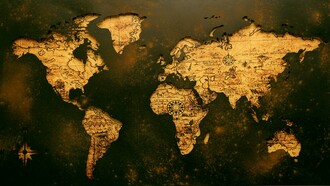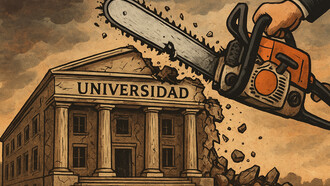So, Jimmy Kimmel has been suspended. Yes, that Jimmy Kimmel—the late-night host who’s made a career out of poking fun at politicians, celebrities, and sometimes himself. At first glance, you might think, “Okay, one less guy in a suit cracking jokes after 11 p.m. Not the end of the world.” But scratch beneath the surface, and this story is much bigger than late-night TV. It’s about the health of free speech in a country that won’t stop telling the world how democratic it is. Spoiler alert: not a good look!
The thing is that late-night satire isn’t just about giggles before bed. It’s about holding up a mirror—sometimes a funhouse mirror—to those in power. Kimmel and his peers (think Jon Stewart and Stephen Colbert) have been some of the few mainstream voices daring enough to mock political hypocrisy in a way millions actually pay attention to. So, when ABC pulls the plug, it’s not just about one man’s monologue. It’s about sending a very clear message: “Careful how far you go. The jokes are fine, until they’re not.” And if comedians start looking over their shoulder before delivering a punchline, guess what? That’s not comedy anymore. That’s self-censorship dressed up as politeness.
But wait, isn’t ABC “just” a private company? Ah yes, that’s quite the classic argument: “It’s a private company after all; they can do what they want.” Technically, that’s true, but ABC is owned by Disney, one of the most powerful media corporations on the planet. When a handful of mega-corporations control what we see, hear, and read, the line between “private business decision” and “systemic censorship” blurs faster than you can say “Mickey Mouse ears.” Let’s not kid ourselves. If Disney decides a joke is too politically risky, do you really think journalists or writers under its umbrella will boldly push the envelope? Please. They’ll get the memo: play it safe, don’t rock the boat, and keep the sponsors happy. And just like that, the boundaries of public debate shrink.
Here’s the delicious irony: the United States is quick to scold other countries for silencing journalists or comedians. “How undemocratic!” they shout from Capitol Hill. Meanwhile, at home, they’re suspending their own satirical voices for being… well, satirical. Let’s be honest: free speech in the United States has always been pretty selective. If you’re a woman, an immigrant, a minority, or simply too radical, your “free speech” suddenly comes with a thousand asterisks. Kimmel’s suspension is just the latest reminder that freedom of expression is tolerated only when it’s comfortable.
But why should you even care about this (even if you don’t watch Kimmel)? Well, maybe you don’t like Jimmy Kimmel—and that’s fair enough—but this isn’t about liking him. It’s about the precedent. Silencing satire doesn’t start with mass arrests or outright bans. It starts small. One comedian here, one journalist there. Before long, you’ve got a whole culture where everyone’s biting their tongue because they know what happens when you don’t. And here’s the kicker: satire is one of the most effective tools progressives have. Not everyone reads 40-page policy papers (no judgment here if you don’t), but millions will laugh at a sharp monologue that exposes political absurdity. Take that away, and you chip away at the very ability to call out power in accessible, relatable ways.
This whole situation shows that, first, we need to talk about corporate media concentration. When so few companies decide who gets a microphone, democracy is already on life support. Supporting independent media isn’t a cute hobby—it’s a survival strategy. Second, audiences need to stop shrugging. Saying “It’s just a late-night show” is like saying “It’s just one tree” in a burning forest. Today it’s Kimmel; tomorrow it’s anyone daring to question power.
And finally, let’s stop pretending the United States is the global gold standard of free speech. Yes, authoritarian regimes abroad are worse—no doubt, but if the United States keeps chipping away at its own freedoms while pointing fingers elsewhere, the hypocrisy becomes impossible to ignore.
To conclude this pretty monologue, Jimmy Kimmel being suspended isn’t the end of democracy. However, it surely is a red flag waving in our faces. It shows how quickly satire can be muzzled when it strays outside the comfort zone of corporations or politicians. It shows that the First Amendment is more fragile than we like to admit. And it shows—yet again—that freedom of speech in the United States often applies more in theory than in practice. So no, this isn’t just about losing one guy’s jokes after 11 p.m.
It’s about losing the ability to laugh at power—and laughing at power, let’s be real, is one of the healthiest signs of democracy we’ve got, at least for now. When satire disappears, democracy doesn’t vanish overnight, but it slowly erodes into a quieter, duller, and more obedient public sphere where silence becomes the safest punchline.















